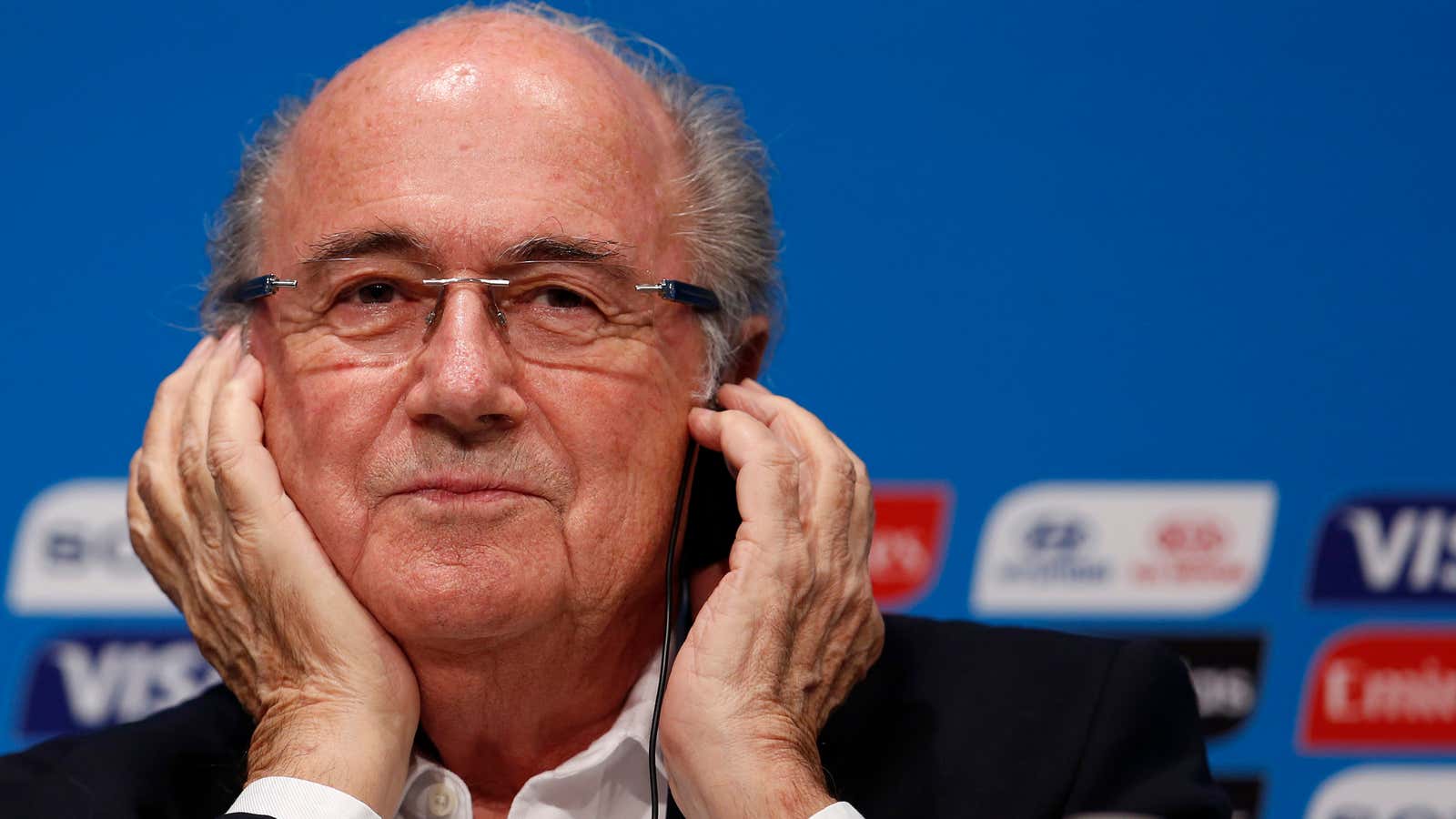Switzerland makes an important distinction between public and private corruption.
“In Switzerland, the giving and accepting of such advantages [referring to bribery] are only punishable when a Swiss public official is concerned,” according to the State Secretariat for Economic Affairs. “Unlike the bribery of public officials, the bribery of private persons is pursued under criminal law only on complaint.”
And that’s after six years of tightening the law.
In particular, this distinction affects the sports bodies based in Switzerland—including world soccer’s FIFA, European soccer’s UEFA, the International Olympic Committee, and the International Cycling Federation—all of which have been tainted by accusations of outright corruption. Now, Switzerland is signalling that its had enough.
Pointing to the ”many international sports federations [that] are based in Switzerland and whose decisions have been discredited repeatedly by corruption scandals,” the Swiss Federal Council said “private corruption while in office will be prosecuted and punished, even if it does not lead to competitive distortions,” according to France’s Le Point weekly (in French).
It comes after Sepp Blatter, at the age of 78, announced he is running again for fifth term at the head of FIFA—in the same week as a member of his audit and compliance committee was arrested on suspicion of corruption and money-laundering in the Cayman Islands.
In May, Britain’s Sunday Times (paywall) obtained millions of documents that it said proved that Qatari football official Mohamed Bin Hammam paid $5 million to football officials in return for their support for the Qatar bid to host the 2022 World Cup; an investigation into that was completed last week by FIFA itself but the results haven’t been made public. Bin Hammam, who declined to comment on the Sunday Times report, has the dubious distinction of being banned from soccer for life—twice.
The Olympics have also been under scrutiny—including the curious decision to award the winter edition to one of the warmer places in Russia. In his piece, the Le Point writer, Ian Hamel, gave his account of attending an event in the 2000s in a hotel in Lausanne where members of the International Olympic Committee went in and out of an adjoining room to get goodie bags supplied by Russia. Later, Hemel recalled, it was announced, “Sochi has been chosen for the winter games, even though the IOC can’t find this city on a map!”
Yet the IOC officials could not be arrested by the Swiss police standing outside of the hotel, despite their “pockets bulging with bank notes,” Hamel claimed.
Quartz attempted to contact the IOC and FIFA for their responses on Sept. 13 but was unable to reach anyone.
